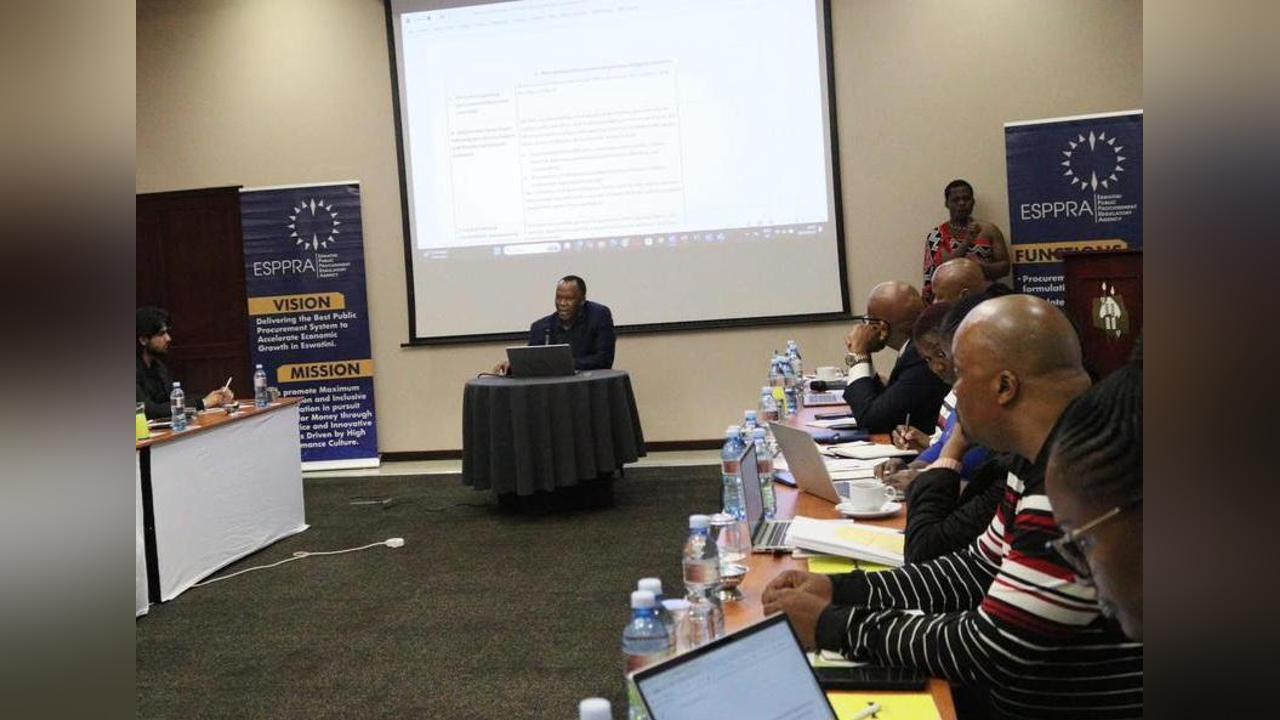Africa-Press – Eswatini. Ensuring that no patient goes without life-saving medicine requires more than just stock in the Central Medical Stores warehouse, it demands efficiency, fairness, and open communication between government and suppliers.
On September 19,3025 a high-level dialogue at the Royal Villa brought together the Ministry of Health, the Eswatini Public Procurement Regulatory Agency, and pharmaceutical suppliers to address critical challenges in the country’s medicine supply chain.
Among those who contributed to the discussion was Rizwan Mahebub Diwan, General Manager of MVJ Surgical and Medical Supplies. He raised several key concerns aimed at improving efficiency, communication, and transparency within the procurement and supply chain.
Diwan emphasized the importance of fairness and equal treatment for all suppliers, noting that suppliers from South Africa and those operating in Eswatini should be regulated under the same standards. He also highlighted administrative issues such as frequent spelling errors on purchase orders, which often cause delays in supplier payments despite goods having already been delivered.
Another concern raised was the issuance of very small purchase quantities, such as orders of 200 or 300 units, which manufacturers find impractical to produce. Mr. Diwan proposed that government consider larger, more consolidated orders that align with manufacturing requirements.
He further called for the establishment of a clear delivery schedule to guide suppliers on when to supply goods, and stressed the need for consistent product descriptions. Frequent last-minute changes, he noted, can lead to the rejection of stock worth millions after production.
Improved communication between the Medicines Regulatory Unit (MRU) and the Central Medical Stores (CMS) was also highlighted. According to Diwan, discrepancies between the two bodies often result in unnecessary rejections, despite products being registered.
He further appealed to procurement authorities to notify suppliers promptly if orders are cancelled. In one instance, late communication led to a loss of over E2 million when goods had already been imported into the country.
Despite the frustrations, Diwan’s contribution was constructive and forward-looking. He urged government stakeholders to tighten systems, improve coordination, and enhance communication with suppliers, stressing that collaboration is the only way to ensure that patients in Eswatini receive their medicines without delay.
The dialogue marked an important step toward addressing systemic challenges in the supply and distribution of medicines. Stakeholders agreed that strengthening efficiency, fairness, and transparency will not only safeguard the investment of suppliers but also support the Ministry of Health’s goal of ensuring a reliable supply of life-saving medicines for all citizens.
For More News And Analysis About Eswatini Follow Africa-Press







